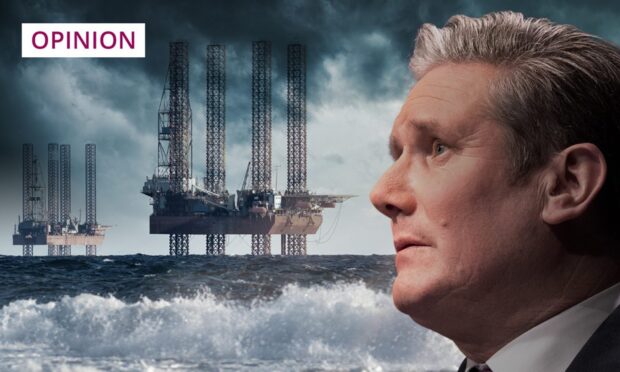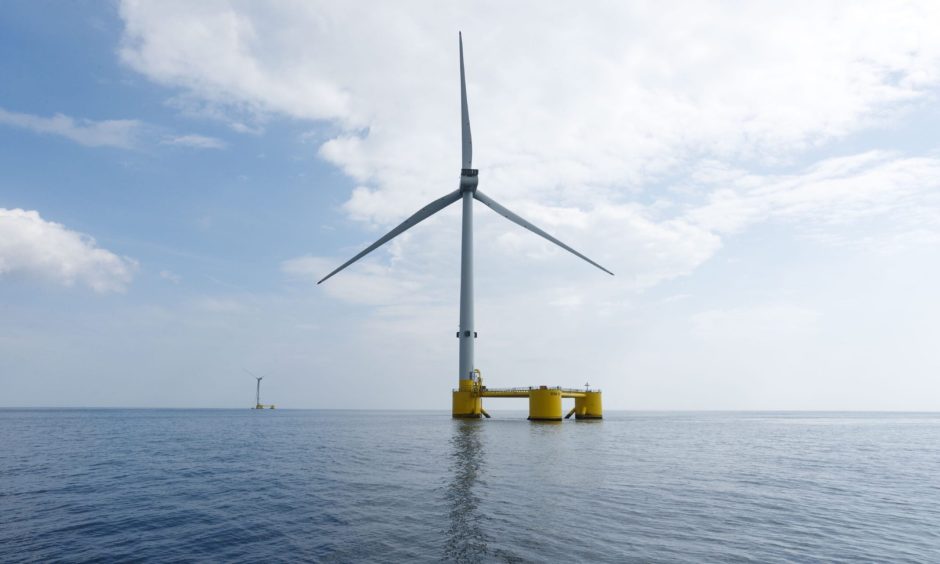Labour likes a windfall tax.
In 1997, Tony Blair’s government wanted to send a message to voters that it would be fiscally prudent, putting the “new” into New Labour, and so ruled out any income tax rises in its first term of office.
However, it still needed to increase public spending after 18 years of tight Tory government. A safe target seemed to be the privatised utilities, which were generally unpopular with the electorate and seen to be profiteering at the public’s expense.
A tax on the “excess profits” of these formerly state-owned companies in sectors such as water, rail and energy duly followed, raising an estimated £5 billion, which was used to boost spending on schools and fund the New Deal welfare-to-work programme.
The fine art of taxation is often said to consist of plucking the goose in such a way as to obtain the largest possible amount of feathers with the smallest possible amount of hissing (though this isn’t a model the SNP/Green coalition seems to follow).
It therefore makes sense, politically at least, for parties that face a tight economic climate, or who are trying to impress with their fiscal rectitude, or both, to identify “bad guys” that can be milked to boost spending.
As New Labour led in 1997, so Keir Starmer plans to follow when he becomes prime minister.
Starmer and Reeves are going for the energy sector
Where Blair and Gordon Brown identified the privatised utilities as fair game, Starmer and his shadow chancellor Rachel Reeves are going for the oil and gas sector.
Their gamble is that an era of high energy bills, plus growing concern about climate change and the desire for a transition to renewables, means voters look less than fondly on, say, the oil multinationals.
Plus, if it’s coming from someone else’s pocket rather than your own, that’s a good thing, right?
Up to a point. Labour says it will extend the existing energy profits levy, introduced in 2022 after prices shot up due to the war in Ukraine, to 2029, and also increase the levy to 78%. This would, it claims, raise £10.8bn over five years to pay for the party’s ambitious green projects.
Starmer insists that work in the north-east sector “will continue for decades to come”.
But oil and gas bosses have announced an emergency summit in response to Labour’s plans.
Offshore Energy UK chief executive, David Whitehouse said the organisation is “deeply concerned about what Labour’s proposals could do to our people.
I’m already hearing from our supply chain and energy producers that these proposals would deliver a hammer blow to the energy we need today and the homegrown transition to cleaner energies everyone in the UK wants to see.”
Labour’s energy policy could see the loss of between 20,000 and 100,000 jobs from North Sea
Ryan Crighton, policy director at Aberdeen and Grampian Chamber of Commerce, goes further, warning that “the outcome of these proposed policies could be anywhere between 20,000 and 100,000 job losses. Even trade unions are drawing comparisons with the closure of the UK’s coal pits in the 1980s.”
To some, this will sound alarmist, and most of us agree that the nature of our energy supply must fundamentally change to cut carbon emissions to sustainable levels.
Still – and whatever Starmer’s insistence to the contrary – both Labour and the SNP sometimes give the impression that the North Sea is a headache and it would suit them quite nicely if it would simply go away.
Talk of a “managed transition” that protects jobs is often undercut by the policies pursued and the conflicting messages sent out – often deliberately, to appeal to the left-wing support that both parties rely on.
There is a strong argument, less often aired, that closing down the North Sea as an oil and gas production area will make little difference to achieving net zero.
In fact, it could increase the UK’s net carbon emissions, as we will use exactly the same amount of oil and gas, but ship it in from further away.
Even renewables rely heavily on oil and gas production, such as for the materials that build wind turbines and solar panels. Our extraction of minerals from the ground and the seabed is increasing rather than shrinking.
We also run the risk of making the UK even more reliant than it already is on energy supplied by hostile countries who could deploy this reliance as a form of economic warfare.
It’s obvious that the world is getting more, not less, dangerous, and this needs urgently to be factored into our planning in relation to self-sufficiency.
Labour, especially in Scotland, tells me constantly that its current approach to the business community is based on “listening”, which it contrasts with years of SNP neglect.
And it’s undoubtedly welcome that Starmer plans to headquarter GB Energy – a publicly owned energy generation company – in Scotland.
There is, though, a danger that party chiefs are only willing to listen when it suits them.
We’ve all grown weary and more than a little sceptical of politicians’ extravagant forecasts about future prosperity and wild promises about the jobs that will be created.
A little less idealism and a little more reason when it comes to energy policy is long overdue.
Chris Deerin is a leading journalist and commentator who heads independent, non-party think tank, Reform Scotland


Conversation